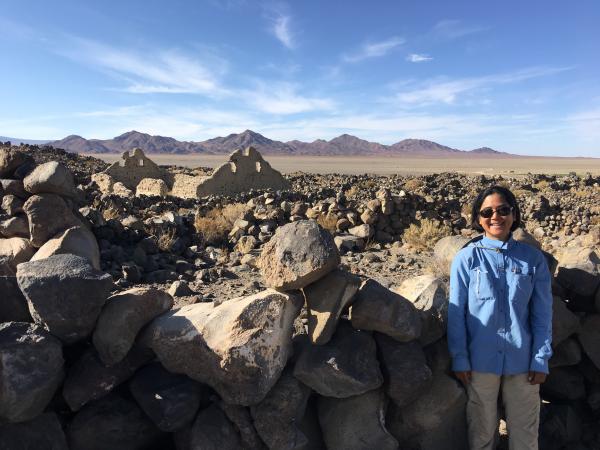Jeffrey R. Parsons Lecture 2024: Water, Copper, Earth Beings, and Empire: Late Prehispanic Political Ecology in the High-Altitude Atacama Desert
Dr. Frances M. Hayashida, Professor of Anthropology and Director of the Latin American and Iberian Institute at the University of New Mexico
Late Intermediate Period (ca. 950 – 1400 AD) farmers in the high-altitude, hyperarid Atacama Desert of northern Chile sustained their communities by carefully managing land, water, and flocks and by maintaining good relations with powerful, tutelary earth beings (mallkus). When the Inka entered this area in the early 15th century, they took over the region’s productive copper mines, built roads and state installations, and reconfigured agriculture. Our collaborative project, which focuses on sites between the upper Loa and Salado rivers, investigates farming in this seemingly marginal environment. We additionally explore how agriculture and social relations (between people, and between people and mallkus) were transformed by Inka intervention in access to water and copper minerals, two resources around which life in this region revolved in the past as in the present. A focus on these two substances helps us to understand local organization and transformations under Inka rule, and at the same time, requires us to rethink purely economic explanations for imperial incorporation and actions.
Frances Hayashida is Professor of Anthropology and Director of the Latin American and Iberian Institute at the University of New Mexico. Throughout much of her career she has studied late prehispanic political economy and ecology in desert regions of the Andes, first in Lambayeque on the north coast of Peru, and more recently, in the high-altitude Atacama of northern Chile. With Andres Troncoso and Diego Salazar, of the Universidad de Chile, she co-edited Rethinking the Inka: Community, Landscape and Empire in the Southern Andes (2022, University of Texas Press), which highlights the theoretically innovative and empirically rich research of South American scholars on the Inka in Qullasuyu, the vast and diverse southern sector of the Inka Empire.
Frances Hayashida is Professor of Anthropology and Director of the Latin American and Iberian Institute at the University of New Mexico. Throughout much of her career she has studied late prehispanic political economy and ecology in desert regions of the Andes, first in Lambayeque on the north coast of Peru, and more recently, in the high-altitude Atacama of northern Chile. With Andres Troncoso and Diego Salazar, of the Universidad de Chile, she co-edited Rethinking the Inka: Community, Landscape and Empire in the Southern Andes (2022, University of Texas Press), which highlights the theoretically innovative and empirically rich research of South American scholars on the Inka in Qullasuyu, the vast and diverse southern sector of the Inka Empire.
| Building: | School of Education |
|---|---|
| Event Type: | Lecture / Discussion |
| Tags: | Anthropology, Archaeology |
| Source: | Happening @ Michigan from Museum of Anthropological Archaeology, Department of Anthropology |


